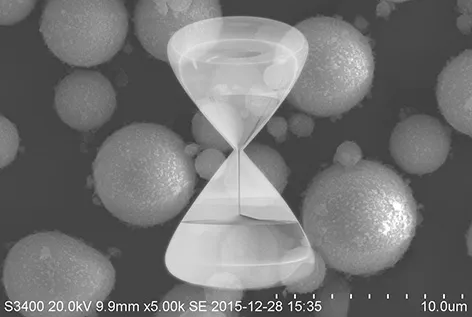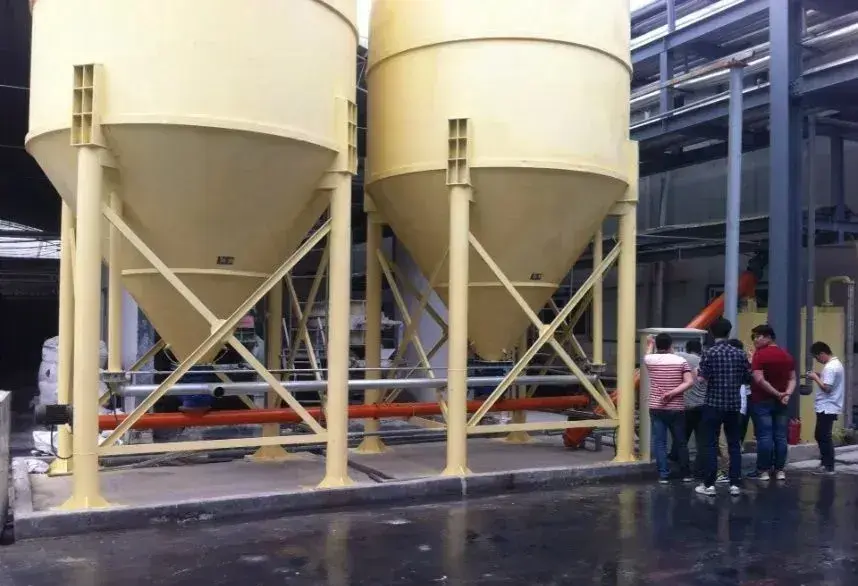As a unique clay mineral, bentonite has shown wide application potential in many fields due to its excellent adsorption, ion exchange and plasticity. In recent years, with the continuous advancement of technology, the application of bentonite in the rubber industry has gradually become a research hotspot. In particular, significant technological breakthroughs have been achieved in rubber reinforcement materials.
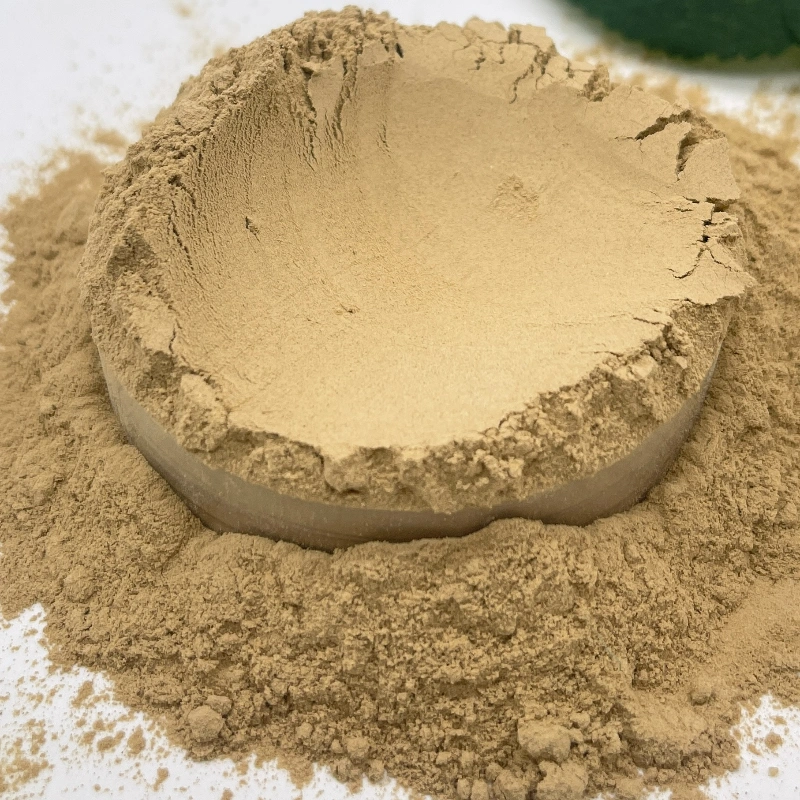
Technical principles of bentonite reinforced materials
The technical principle of bentonite reinforcement materials is mainly based on its physical and chemical modification of the rubber matrix. Bentonite particles can be evenly dispersed in the rubber matrix to form effective physical cross-linking points. This improves the mechanical properties and durability of the rubber. In addition, bentonite also has excellent adsorption properties. It can absorb small molecules in the rubber, reduce the aging rate of the rubber, and extend its service life.
Advantages and characteristics of bentonite as rubber reinforcement material
Advantages
Bentonite‘s main component is montmorillonite, which has excellent water absorption, adhesiveness, expansiveness, and suspension properties. These characteristics enable bentonite to play multiple roles in rubber. When bentonite absorbs water, it expands several times, even up to 30 times. This expansion allows it to form water-swelling rubber with a maximum expansion rate of 250% to 500% when combined with organic binding materials like rubber. This type of rubber expands rapidly when in contact with water, effectively sealing and stopping water, making it especially suitable for waterproof sealing in tunnels, reservoirs, dams, and other engineering projects.
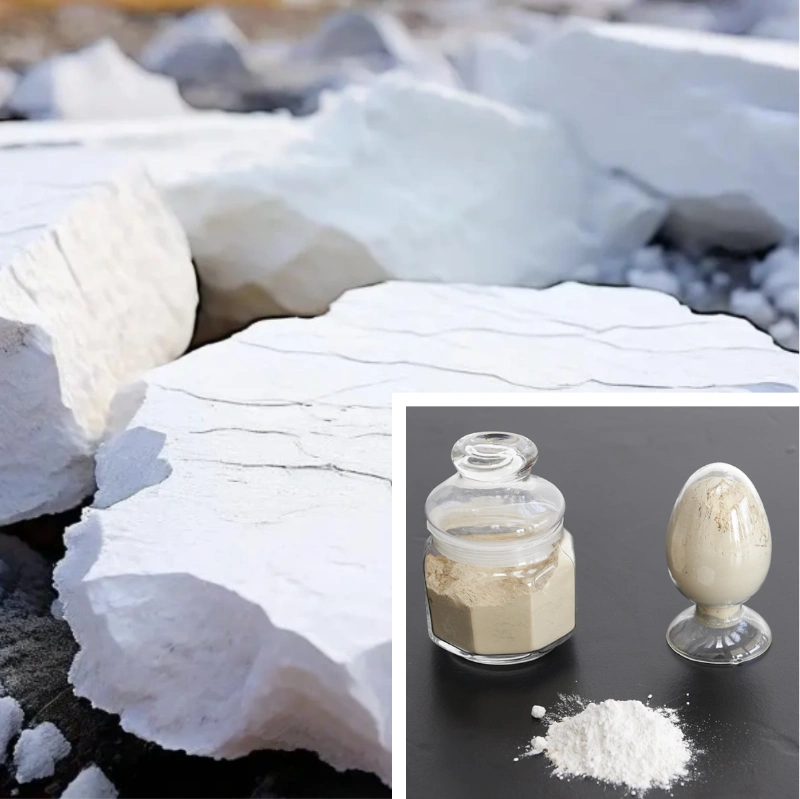
Bentonite can be directly added to rubber to significantly enhance its flame resistance, insulation, and wear resistance. In the production of rubber products, bentonite serves as a filler that disperses evenly within the rubber matrix, improving its physical and mechanical properties. For example, bentonite increases rubber’s tensile strength, tear strength, and hardness, while also improving wear resistance and aging resistance. These improvements help rubber products maintain stable performance even in harsher environments.
Additionally, bentonite’s role as an isolating agent in rubber is significant. During rubber product manufacturing, bentonite, combined with other additives, can be made into a bentonite isolating agent. This agent helps prevent sticking at high temperatures, contributing to better surface finish and production efficiency. Bentonite isolating agents are increasingly applied in the tire and rubber industries.
characteristics
Modified bentonite, such as organic bentonite and nanoscale organic bentonite, is more commonly used in rubber applications. Modified bentonite retains the basic properties of bentonite, while its modification enhances compatibility and dispersion with rubber. This improves its reinforcing effect, further boosting the performance of rubber products. Nanoscale organic bentonite significantly improves rubber’s air-tightness, stress at constant elongation, tensile strength, heat resistance, wear resistance, corrosion resistance, weather resistance, and chemical resistance.
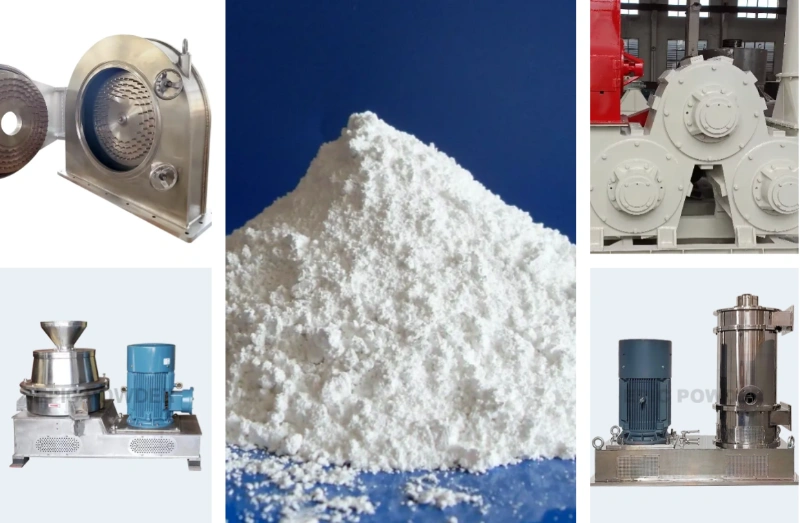
Bentonite is also cost-effective as a rubber reinforcement material. It is inexpensive and widely available, making it a cost-efficient filler. Furthermore, bentonite can replace some traditional fillers, such as calcium carbonate and white carbon black, further lowering production costs and improving the cost-performance ratio of rubber products.
Technological breakthrough
In recent years, there have been significant technological breakthroughs in bentonite-enhanced materials in the rubber industry. These advancements can be summarized in the following aspects:
Nanometer Dispersion Technology
By treating bentonite with nanotechnology, its particle size is reduced to the nanoscale. This makes it easier to achieve uniform dispersion in the rubber matrix. This dispersion significantly improves the rubber’s tensile strength, tear strength, and wear resistance. Studies show that rubber materials enhanced with nanometer-grade bentonite can increase tensile strength by over 20% and tear strength by more than 15%.
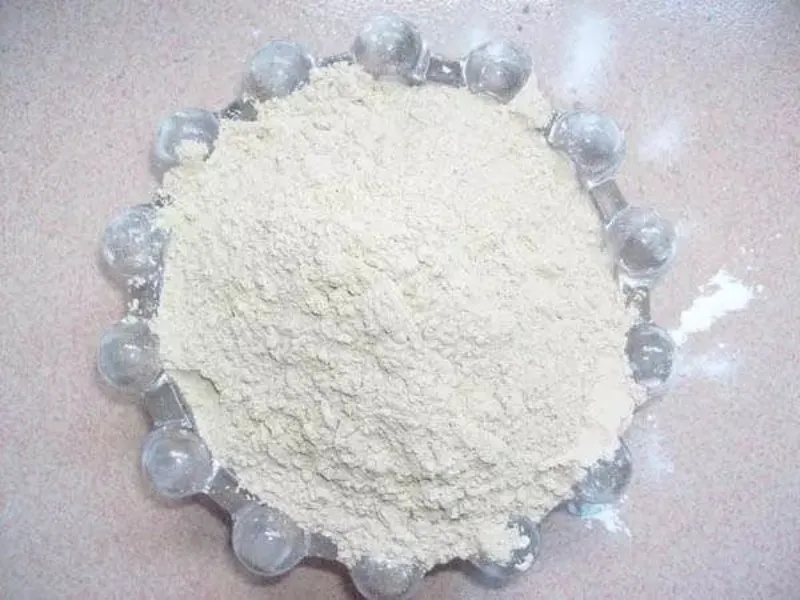
Organic Modification Technology
Organic modification of bentonite changes its surface properties, improving compatibility with the rubber matrix. Organic-modified bentonite not only enhances the mechanical properties of rubber but also improves processing performance and reduces energy consumption. Experimental data indicate that rubber materials enhanced with organic-modified bentonite can reduce energy consumption during processing by around 10%.
Recycling Technology
In the context of environmental protection and resource conservation, the recycling of bentonite has become a research focus. Waste bentonite materials can be collected, processed, and reused in rubber reinforcement materials. This reduces resource waste and production costs. It is estimated that the production cost of bentonite-enhanced materials using recycling technology can be reduced by over 15%.
What are the practical applications of bentonite reinforced materials?
Bentonite-enhanced materials in the rubber industry have demonstrated significant advantages in practical applications. Below are some typical cases:
Tire Manufacturing: In automotive tire production, the use of bentonite-enhanced materials can significantly improve the tire’s wear resistance and cut resistance. After adopting bentonite-enhanced materials, a well-known tire manufacturer saw an increase in tire mileage by approximately 20%. Simultaneously, rolling resistance was reduced, enhancing fuel efficiency.

Rubber Seals: In the production of rubber seals, bentonite-enhanced materials can improve the elasticity and corrosion resistance of the seals. For example, in the petrochemical industry, seals made with bentonite-enhanced materials saw a 30% increase in service life, effectively reducing equipment maintenance costs.
Mining Barrier Wall Materials: In the remediation of contaminated mining sites, bentonite-enhanced materials are used to construct vertical barrier walls. Through specific formulations and processes, these materials create barriers with low permeability and high durability, effectively preventing the spread of pollutants. In one mining site remediation project, a vertical barrier wall made from bentonite-enhanced materials achieved a permeability coefficient as low as 2.3×10^-10 m/s, much lower than traditional barrier materials.
Epic Powder
In the research and application of bentonite-enhanced materials, Epic Powder offers advanced grinding and surface modification equipment that can further enhance the dispersion and performance of bentonite. Through precise grinding and efficient surface modification treatment, Epic Powder’s equipment helps achieve more effective material modification, thus promoting the widespread application of bentonite-enhanced materials in the rubber industry. These technologies not only improve the mechanical properties of rubber products but also optimize production efficiency, reduce energy consumption, and costs, fostering sustainable development.
